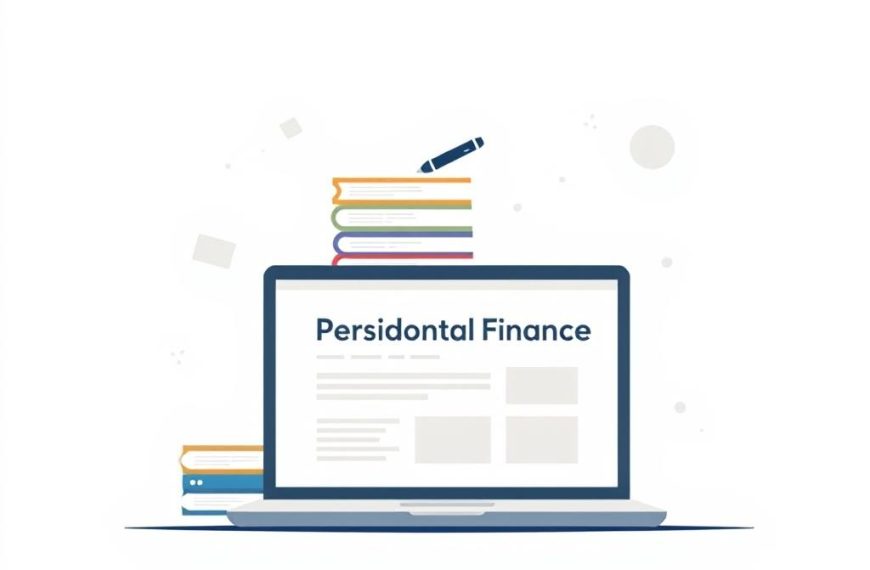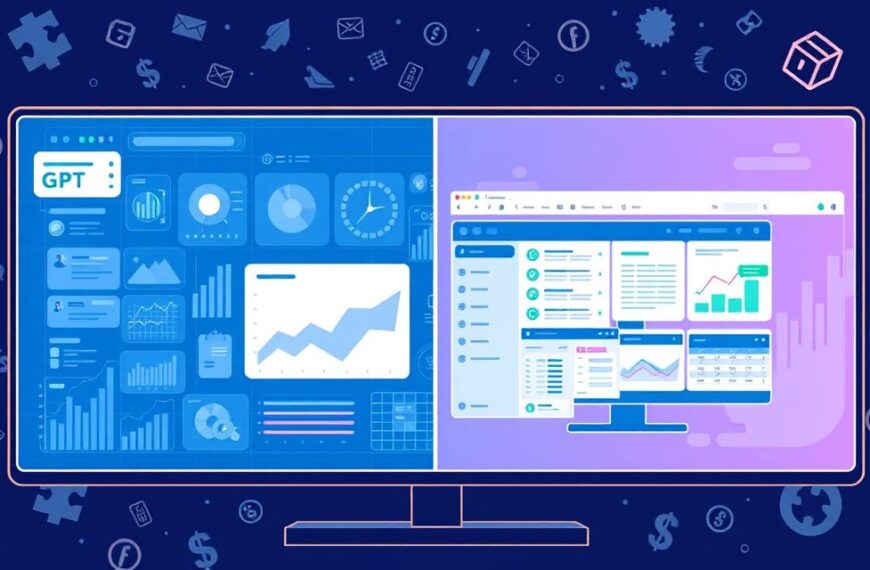Understanding your money is key in today’s world. About 64% of people do not know what they spend each month. This shows a big chance to get better at managing money. This article gives tips on managing your finances well, even without earning more money.
Start by tracking how much you spend, making a budget that works for you, and saving for emergencies. For example, a budget based on what you already do can make you 75% more likely to stick to it. Saving even a little can keep you from needing loans with high interest. In fact, 82% of people who saved for emergencies found it helpful.
Paying your bills on time can help 73% of people improve their credit score. This can lead to lower interest rates on loans. Cutting unnecessary expenses and wise investing are also important. These steps can help keep your finances in good shape.
Understanding Personal Finance Management
Managing personal finances is crucial for financial stability and reaching individual goals. This includes budgeting, spending wisely, saving, and investing. Knowing what personal finance means is key. It helps people effectively manage their money journey. Since December 2019, household debt has risen to $3.7 trillion. This makes managing finances even more important.
What is Personal Finance?
Personal finance is about managing one’s income, expenses, savings, and investments. It affects one’s financial health. Income comes from jobs, investments, or dividends. Expenses are things like rent, groceries, and fun activities. Good finance management means spending wisely to keep expenses below income. It’s also important to save for the future. Investing can help grow wealth over time, offering better financial security.
Importance of Financial Literacy
Financial literacy helps people tell the difference between good and bad financial advice. The 2022 Investopedia Financial Literacy Survey shows concerns over basics like retirement and cryptocurrencies. Understanding how to manage personal finances can reduce stress about money. It leads to smarter choices about financial products.
Being financially literate lets people manage their money better, avoid debt, and meet long-term goals. This skill is crucial for anyone wanting to achieve financial freedom and security.
| Aspect | Details |
|---|---|
| Income | Cash inflow from jobs, investments, and dividends |
| Expenses | Necessary costs like rent, groceries, and entertainment |
| Saving | Setting aside money for emergencies or future needs |
| Investing | Purchasing stocks, bonds, or assets to grow wealth |
| Financial Security | Stability provided by effective management of finances |
Track Your Spending to Improve Your Finances
Keeping an eye on your spending is key to managing your money well. It helps you understand your financial routine, find where you might be spending too much, and change your habits if needed. Knowing where your money goes can lessen financial worries, improve your cash flow, and boost your monetary well-being.
The Role of Financial Tracking
Keeping track of finances plays a big role in managing your money. It helps find where you might be overspending. This makes it easier to decide what’s a must-have or a nice-to-have. Keeping an eye on what you spend helps with budgeting and reaching your financial targets. Experts suggest tweaking your budget now and then to keep up with changes in your income or unexpected costs.
Using Apps for Expense Monitoring
Apps have become a handy tool for keeping an eye on spending. They make it easy to keep track of daily expenses with features like payment reminders and linking to bank accounts. Tools like MoneyTrack are great for sorting expenses, and they’re really useful for couples managing their money together.
Logging every purchase can be a drag. But with these apps, the maths is done for you, making it simpler to know your financial state. Sticking with it for a month can give you a clear view of where your money goes. This insight helps you make smarter choices about saving and investing.
The table below shows different ways to track your spending and their benefits:
| Tracking Method | Benefits |
|---|---|
| Pencil and Paper | Simple and accessible; promotes mindfulness |
| Envelope System | Visually limits spending in different categories |
| Computer Spreadsheets | Customisable; allows for detailed tracking and analysis |
| Budgeting Apps | Convenience; integrates bank accounts for real-time updates |
Making expense tracking part of your daily life can increase discipline and promote responsible financial habits. It’s a great way to figure out where to cut back on spending. Plus, it helps in creating a strong budget that supports your financial future.
Create a Realistic Monthly Budget
Setting up a practical monthly budget is crucial for improving personal finances. It requires examining your monthly income and expenses closely. This ensures the budget fits your lifestyle and financial goals. Various strategies can help, but being flexible is the best approach. Adjusting your budget as your finances change is essential for success.
How to Establish Your Budget
To start a budget, first figure out your total monthly income, which might be around $3,000 for some. Then, sort your expenses into needs, wants, and savings. The 50/30/20 rule is a helpful starting point:
| Category | Percentage of Income |
|---|---|
| Needs | Up to 50% |
| Wants | 30% |
| Savings and Debt Paydown | 20% |
This method promotes wise financial management and cuts down on unnecessary spending. It’s vital to keep an eye on your spending and adjust your budget as needed. For people with fluctuating incomes, it’s smart to underestimate your monthly income. Starting with a $500 emergency fund and saving up to 20% of your income monthly is a good idea.
Adjusting Your Budget Over Time
Your budget should adapt as your financial situation changes. Reviewing and updating your budget regularly keeps it in line with your needs. Analyzing financial statements helps you make better estimates, which is especially useful if your income varies throughout the year. Saving for yearly expenses monthly lessens the stress of big bills.
By following these monthly budget tips, you can enhance your savings and financial security. Studies show that optimistic budgeting can cut spending by over 21%. This encourages people to think carefully about their spending habits. A precise and adaptable budget is key to achieving financial goals in the long run.
How to Maintain Personal Finance: Build Up Your Savings
Having strong savings strategies is key to financial security. It’s smart to start with an emergency fund. This fund is a safety net for unexpected costs, avoiding the need for loans with high interest. Experts suggest saving enough to cover three to nine months of expenses.
Even saving a little bit regularly is beneficial. Setting up automatic transfers from checking to savings accounts makes this easier. Most banks provide this service, helping you save bit by bit.
Checking your financial plan every year is important. It ensures your savings match changes in your life. Challenges like the 52-week money-saving challenge help save steadily, with the chance to save around £1,378 in a year.
Using budgeting tools can keep track of your monthly spending, making it easy to spot where to cut back. Looking at your monthly expenses can find opportunities to save more. Banks sometimes offer bonuses for saving, like matching retirement contributions in 401(k) plans.
The table below outlines different savings strategies and their potential savings outcomes:
| Strategy | Potential Savings | Timeframe |
|---|---|---|
| 52-Week Money Saving Challenge | £1,378 | 1 Year |
| No-Spend Money Challenge | Variable (depends on nonessentials) | Set Period |
| Weather Wednesday Challenge | Variable (saves based on temperature) | Weekly |
| Emergency Fund Savings | 3-9 Months of Expenses | Ongoing |

Pay Your Bills on Time Every Month
Paying your bills on time is key to managing your money well. It avoids late fees and boosts your financial health. On-time payments are vital for a good credit score, which you’ll need for future borrowing.
Benefits of Timely Payments
There are many pluses to paying bills when they’re due:
- Reducing late fees: Late fees can eat up a lot of your money. Paying on time saves you from this cost.
- Financial coordination: Matching bill due dates with your payday keeps your bank account in check and eases money worries.
- Credit health: Late payments on credit cards trigger fees and damage your credit score. Remember, payment history makes up 35% of your credit score, showing its impact.
- Improving credit standing: If you’re prompt with your bills, your credit score improves. This opens up opportunities for loans with better rates and access to desirable services.
- Stress reduction: Keeping up with bills lowers stress by making your financial planning more reliable.
Using automation makes bill payments smoother. Many services allow you to change payment dates to fit your schedule. Setting payments to go automatically through banks or straight to creditors integrates punctual payments into your daily life.
If you want more advice on handling bills well, check out this guide. Being consistent in paying bills not only saves you from late fees but improves your chances of getting financial services.
Cut Back on Recurring Charges
Cutting back on recurring costs can really help with your finances. The first step is finding subscriptions you don’t need. Many homes keep paying for things they hardly use. By checking where your money goes, you can spot these extra charges. This helps you manage subscriptions better and save money.
Identifying Unnecessary Subscriptions
Streaming services show how we end up with subscriptions we don’t need. By January 2024, nearly all U.S. homes had at least one. Checking these services regularly helps decide what to keep or cancel. Doing this gives you more control over your money.
Strategies to Reduce Monthly Expenses
There are smart ways to reduce your bills and improve your finances. Here are some tips:
- Look closely at all recurring expenses.
- Use automatic tools to keep subscriptions in check and avoid unwanted costs.
- Use pricing tools to make sure you’re not paying too much.
- Consider consolidating debt, which could clear debt in 3-5 years instead of 20 by paying the minimum.
- Pay necessary bills first to make sure important payments are always covered in your budget.
- Adjust your spending to stay within your budget, particularly for housing and utilities.
By making smart changes and focusing on recurring costs, you can save money and boost your finance health. Use these ideas to get better at managing your money. For more tips, check out this comprehensive resource.
Start an Investment Strategy
Starting to invest is key to building wealth. Even small contributions can grow into a large sum over time. It’s important to define your investment strategies and know about the different types of investments. This knowledge lets you make choices that could greatly improve your portfolio.
Using retirement plans from work, like a 401(k), brings tax benefits while saving for later life. Looking into Individual Retirement Accounts (IRAs) offers chances for similar tax-efficient growth. Currently, investment platforms might not have special deals. However, they offer easy trading with low fees. In fact, some platforms charge no fees at all for online equity trading.
Entering the investiture might seem easier when you focus on well-known investment strategies. These strategies can include:
- Starting with retirement accounts
- Buy-and-hold investing
- Active investing
- Dollar-cost averaging
- Index investing
- Growth investing
- Value investing
- Income investing
- Socially responsible investing
Knowing your comfort with risk is key when picking types of investments. A financial advisor considers your ease with market changes and your investment timeline. For example, if you’re investing over a long period, a riskier portfolio might work. But, those near retirement might choose safer options.
Spreading your investments between U.S. and international stocks, and different sectors, helps manage risk through diversification. Making thoughtful investment choices involves understanding your own situation, including age, risk comfort, and financial goals.
If you want more advice on investing, check these tips on effective investment strategies. Learning is crucial to invest successfully. So, it’s vital to keep updating your knowledge and adapt to changes in the markets.
| Investment Strategy | Risk Level | Ideal For |
|---|---|---|
| Buy-and-hold investing | Low | Long-term investors seeking gradual growth |
| Dollar-cost averaging | Variable | Those looking to build consistently over time |
| Active investing | High | Investors comfortable with market volatility |
| Income investing | Low | Individuals focusing on steady cash flow |
Conclusion
Keeping on top of your money matters requires ongoing effort and discipline. Simple actions like tracking your spending and making a budget help. They set the foundation for financial stability and safety in the long run. Embracing good finance habits matters not just for you, but it also helps the bigger economy.
Learning about managing money is a never-ending journey. We’ve come a long way since the first big study in 1920 by Hazel Kyrk. Now, knowing how to plan for retirement, invest wisely, and use credit smartly changes your financial future. It’s all about staying alert and informed about your personal finances.
To do well with money, you need a strong base that balances what you earn and spend with savings and investments. It’s crucial to have an emergency fund that can cover living expenses for three to six months. This is important for dealing with surprises life throws at you. Always keep learning about money matters. It helps you make smart choices and achieve a secure and wealthy future.
FAQ
What is personal finance management?
Personal finance management is about budgeting, saving, investing, and careful spending. It aims to help you reach your financial goals and ensure a secure future. This includes managing your money properly, whether it’s coming in or going out.
Why is financial literacy important?
Being financially literate is key because it enables you to make smart decisions about your money. It helps you to know good from bad financial advice. That way, you can create a bright financial future for yourself.
How can I track my spending effectively?
To keep an eye on your spending, consider using apps like MoneyTrack. You could also write down your expenses in a notebook. Knowing where your money goes helps you make better budget decisions.
What are some tips for creating a realistic monthly budget?
Start by working out your income and listing all your monthly outgoings. Use the 50/30/20 rule to split your income between needs, wants, and savings. Make sure your budget helps you meet your financial objectives.
How can I build up my savings?
To grow your savings, regularly put money aside, even if it’s a small amount. Start an emergency fund for sudden expenses. Think about setting up an automated saving plan to help save without thinking about it.
What are the benefits of paying bills on time?
Being on time with bill payments saves you from late fees and keeps your credit score healthy. It builds financial discipline. This can lead to better loan rates and credit options later on.
How can I identify unnecessary subscriptions?
Look at your bank statements and spending often to spot unused subscriptions. Cancel any service you don’t use much. This frees up more money for managing your finances better.
What investment strategies should I consider?
Consider starting with retirement plans offered by your employer, like a 401(k), or look into Individual Retirement Accounts (IRAs). Getting to know different investment options will enable you to make choices that could grow your wealth as time goes on.

















